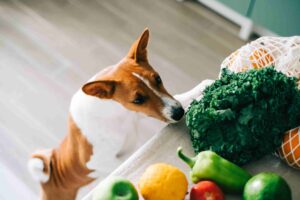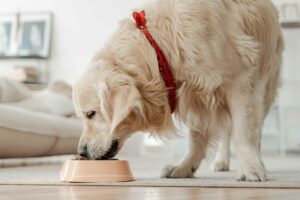Beta-glucans are a major structural component of the cell wall of fungi, yeasts and cereals, as well as some bacteria and algae; several studies in humans and mice have evaluated the ability of beta-glucan to influence physiological and metabolic processes in the body, such as stimulation of the satiety, the reduction of blood glucose and cholesterol concentrations and the Decreased body weight.
Few studies, however, have demonstrated the performance of beta-glucans as immunomodulatory agents, a capability due to the recognition of beta-glucan as a Pathogen-Associated Molecular Pattern (PAMP) by different cells of the immune system.
The faculty of Lavras, Brazil, conducted a study in which the purpose was to evaluate the effects of dietary supplementation with beta-glucan extracted from oats on physiological, metabolic, immunological, and nutritional parameters of adult dogs.
For this purpose, fourteen dogs were fed a control diet or a diet supplemented with 1% beta-glucan for 71 days. Serum concentrations of glucose, total cholesterol and lipoprotein fractions, as well as plasma concentrations of peptide YY and ghrelin were determined. In addition, the apparent digestibility coefficient of macronutrients (food intake and fecal output, stool consistency score, and stool pH were evaluated.
For assessment of immunological variables, serum concentrations of IL-4 and interferon gamma were determined on days 0, 57, and 71, which corresponded to blood collection before beta-glucan supplementation and 7 and 14 days after the first and second doses of canine cough vaccination, respectively.
Betaglucans: cholesterol-lowering and immunomodulatory agents
The animals fed with supplemented diet showed lower serum concentrations of cholesterol total and low- and very-low-density lipoproteins, lower coefficients of apparent digestibility of dry matter, organic matter, mineral matter and extract with ether, a increased fecal output and a lower stool consistency, as well as a trend toward decrease in apparent digestibility coefficient of crude protein.
A reduction in serum IL-4 concentrations was then observed in animals fed the diet supplemented with betaglucan seven days after the first dose of vaccine. This result suggests that the betaglucan used is able to inhibit the development of a Th2 response.
In general, based on the results observed in the present study, it is suggested that the use of beta-glucan from oats as a dietary supplement has beneficial effects on dogs, mainly through the reduction of blood concentrations of total cholesterol, LDL, and VLDL, and possibly by positively modulating dogs’ response to vaccines.
In addition, the supplemented diet resulted in an increase in red blood cell count, hematocrit percentage and hemoglobin concentration 21 days after vaccination, as well as a lower serum concentration of interleukin-4 seven days after vaccination.
It is concluded that oat beta-glucan extract can be used as a dietary supplement for dogs at a dose of 10 g/kg of food, demonstrating potential for use in feeding obese animals.
Reference
Reference: Ferreira LG, Endrighi M, Lisenko KG, de Oliveira MRD, Damasceno MR, Claudino JA, et al. (2018) Oat beta-glucan as a dietary supplement for dogs. PLoS ONE 13(7): e0201133. https://doi.org/10.1371/journal.pone.0201133







